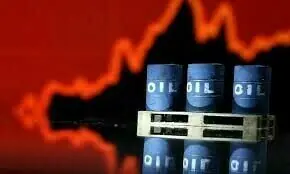BAGHDAD: Iraq hopes fellow producers will reconsider its oil export quota to better reflect its production capacity, Prime Minister Mohammed Shia al-Sudani said on Saturday, a day ahead of an OPEC+ meeting in a rare public comment by a senior Iraqi official.
Iraq, the group’s largest overproducer, is under pressure from the Organization of the Petroleum Exporting Countries to cut output to compensate for having produced more than its agreed volume.
It is among countries that submitted plans in April to make further oil output cuts to compensate for pumping above agreed quotas.
Iraq’s oil exports averaged 3.38 million barrels per day in August, according to the oil ministry. September average oil exports are expected to be between 3.4 million bpd and 3.45 million, the chief of the state oil company SOMO said on Saturday.
OPEC counts oil flows from Kurdistan as part of Iraq’s quota.
Sudani previously appealed publicly for a review of Iraq’s production quota in late 2022.
OPEC+, which includes OPEC members plus Russia and other allies, has reversed its strategy of output cuts from April and has already raised quotas by some 2.5 million barrels per day, about 2.4% of world demand.
Oil heads for weekly loss as higher supply expected
The move is intended to boost market share and follows pressure from U.S. President Donald Trump to lower oil prices.
Eight countries from OPEC+ are set to meet online on Sunday to consider a further output hike.
Another output boost would mean OPEC+, which pumps about half of the world’s oil, would be starting to unwind a second layer of cuts of about 1.65 million barrels per day, or 1.6% of world demand, more than a year ahead of schedule.
Responding to a question about Sunday’s meeting, Iraq’s OPEC representative Ali Nazar said attention was focused on balancing the market, whether through increases, maintaining current production, or cuts.
Separately, Sudani also said there would be arrangements to facilitate the entry of major oil companies to Iraq.
In the past two years, Iraq has signed agreements with oil majors that had previously retreated from the country, including Chevron, France’s TotalEnergies and UK oil major BP.


